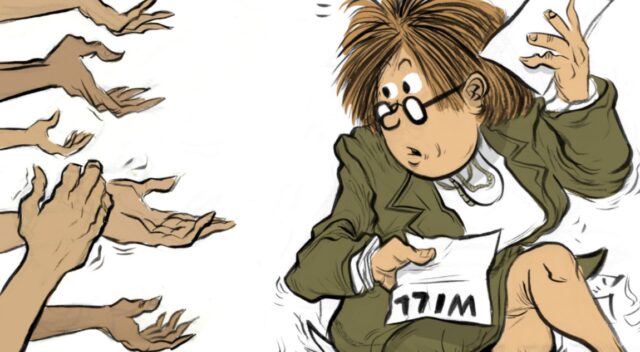
We work hard all our lives and make some assets. However, the people that we meet during our lives are several. Firstly, we get parents, then siblings and then some relatives and friends. Afterward, we get into a relationship and get a spouse and children. This is the time when we become parents as well. But what happens when we die? What happens to the things that we owned?
All of our financial assets get distributed to our family. If you had only parents, your assets will go to them. If you had children and a spouse, your assets will go to them. There is an automatic distribution of assets according to the Law of the State. But if you want to leave something to someone who is not your family member, you can write a will.
Wills

This is the last thing that you will do for the people who are left behind. If you do not want your properties to be owned by someone you don’t like, you can write the will.
There are lawyers who do this job. So if you are looking for someone to do the job, you can go to statetrustees.com.au. They will help you out with writing your legal will and distributing your properties according to your choice. Furthermore, they will also provide guidance if you are in some conflict.
You can also write your will for the distribution of your properties. For example, you and your spouse do not get along really well. However, you are bearing with it for the sake of a better environment for your children. You do not want your children to live their life in a single-parent home.
But if you die right now, your property will go to your spouse and children. So if you do not want it to happen, you can divide it in your will. Write that you divide your properties equally among your children. This will take legal action after your death and your spouse won’t be able to change it.
Estate executor

When you write your will, there will be people responsible for the execution of the written things. So after your death, the executor will make sure that your properties are divided according to your wish. The names of the executors will be written in the legal document too. Therefore, no one can object to that.
However, executors cannot start doing their job as they wish. They need to wait for the court order.
For example, a person dies and you are the executor. Now you have to go to the Probate Court and submit the Will of the deceased. You also need to attach a petition along with the Will. This petition will request the court to open probate.
Probate; is a process in which the court oversees the distribution and management of the assets of the deceased.
Administrator
Administrators have a job similar to estate executors. The only difference is of the Will. Administrators are responsible for doing the job on behalf of a deceased who has not left any Will.
So if the petition is granted, the estate executor or administrator will get the authority to do their job. He will put together all the assets of the deceased and then divide them equally among the inheritors.
The responsibilities and duties of these executors and administrators are mentioned in the law. Therefore, they have to act properly and no one can object to them. Furthermore, this makes things easier for them to divide the assets to the beneficiaries according to the written Will.
Is there any share for them?
It depends on the deceased whether they want to give anything to them or not. However, even if they do not have any share in the assets, they will get their pay. So they are not working for free. If they are doing their duties lawfully and are fulfilling their obligation, they will be paid for their work.
But if the administrator or the estate executor breaches their duty, you can take legal action against them.
Trustees

Trustees are responsible for taking care of something entrusted to them. There are Trust documents in which the name of a trustee is mentioned. When the original trustee dies, the one mentioned in the Trust deed will take control over that.
Just like a Will, there is a trust deed in which there are beneficiaries mentioned in the deed. The trustee is responsible for dividing the assets among the beneficiaries. He will do so according to the legal agreement. There is a Will for Executors and they will make sure their execution. However, there is a legal document for trustees and they act according to it.
No need for court permission
Unlike the Wills, trustees do not need any permission from the court.
In the setup, the first one is the person who has made a trust deed for himself. Then there comes a trustee who will take care of the deed. In case of the death of this trustee, there comes another trustee. He will take the action after the death of the first trustee.
His share in the Trust deed?
There is no share of a trustee in the trust deed. He cannot receive any share from the deed unless he is also named as a beneficiary. So if the owner has put a beneficiary as a trustee, he can have a share in it.
Can he make any changes to the deed?
A trustee can never make any change in the terms and conditions. He will be responsible for the management of the trust and its implementation according to the legal document. The trustee should follow the legal document and entrust the assets to the beneficiaries. He should not go against the legal document and make any change according to his wishes.






